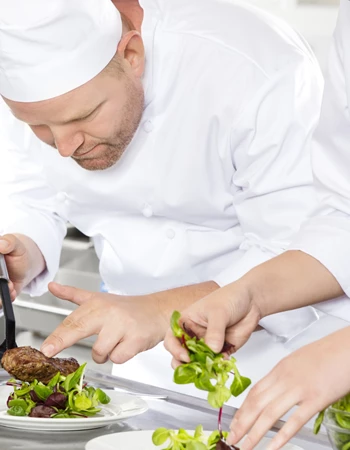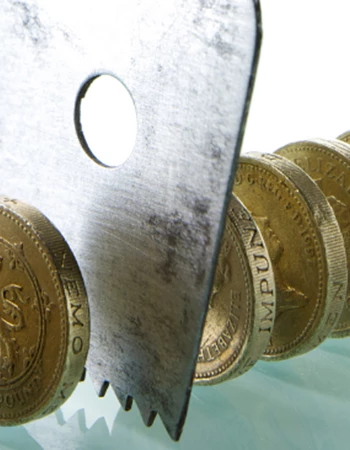-
- Solutions by business priority
- Boost efficiency and profitability
- End to end workforce management
- Attract customers and increase bookings

10 strategies for boosting operational efficiency in your restaurant
Every restaurant business is looking for ways to boost operational efficiency – and why wouldn’t they? Boosting operational efficiency can help to reduce business costs through more effective and accurate ordering, save heaps of time in reducing manual tasks and streamline ordering to create a more satisfying guest experience.
Here at Access, we work closely with businesses to help them get the most out of their software to help them streamline processes and reduce business costs. Our goal is to help you achieve return on investment in any software that you purchase.
 8 mins
8 mins

Written by Jen Grenside
Why is operational efficiency so important?
Operational efficiency is essential for businesses as it helps to reduce costs, increase revenue and improve customer satisfaction. Simply put, the more efficient your operation, the better customer experience you can provide.
By optimising processes such as inventory management, food ordering, menu planning, kitchen workflow, staff scheduling, waste management and service procedures, restaurants can maintain profitability and stay competitive in a challenging industry.
When you enhance efficiency in areas you can control, you'll be better equipped to handle unexpected challenges and external factors.
Achieving operational excellence in a restaurant demands effort, which is why we've compiled a list of ten practical steps to increase your restaurant's efficiency and enhance the customer experience.
Top 10 strategies to improve operational efficiency
So, now that we've discussed the importance of striving for more efficient restaurant management, let's dive into how you can achieve it. Here are our top 10 tips:
#1 - Streamline the menu
Reduce the number of menu items to focus on what sells best and is easier to prepare, reducing waste and kitchen congestion.
A smaller menu simplifies food preparation and reduces cooking time, leading to faster and more efficient service. Your staff can focus on perfecting the dishes, and guests can order quicker and wait for less time which, in turn, can increase table turnover and revenue.
#2 - Train your staff effectively
No matter how enthusiastic your staff are, they can only do so much if you haven’t trained them properly.
Invest in comprehensive training for kitchen and service staff to ensure they are well-equipped to handle their responsibilities efficiently. Well-trained, confident staff are less likely to make errors in taking orders, food preparation, or customer service. Comprehensive restaurant customer service training is essential for your employees to display empathy and resilience.
#3 - Implement standard operating procedures
Develop clear and consistent processes for everything from food preparation to customer service, ensuring everyone follows the same guidelines. Automated workflows can help staff stay organised and provide them with a real-time task list to prevent any tasks from being overlooked. A specialised hospitality checklist app can help you to create, assign and track tasks easily with a digital record of everything to keep your operation running smoothly. overlooked.
#4 - Inventory management
Keep a close eye on inventory levels and strategically order supplies to minimise waste and avoid overstocking. Digital hospitality stock control software can manage stock levels in real-time, indicating exactly what's needed and what isn't. Transitioning from manual restaurant food inventory systems to a digital solution can significantly reduce costs, improve profitability, and reduce the time spent on procurement and processing by 95%.
Read about 5 reasons operators should invest in restaurant inventory software.
#5 - Optimise kitchen layout
Design the kitchen layout for optimal workflow, minimizing unnecessary steps and wait times between stations. Consider investing in a Kitchen Display System (KDS) to expedite orders in the kitchen. A KDS, in conjunction with the restaurant EPoS system, enhances the overall dining experience by delivering faster, more accurate service.
#6 - Technology integration
Integrating your hospitality tech solutions is a game-changer in terms of boosting operational efficiency. Your EPoS can deliver real-time sales data into your other tech solutions, such as inventory management to enable much more accurate stock control – helping you to reorder more efficiently and reduce waste. You can also continuously monitor the popularity of your dishes over time, making menu adjustments as needed.
With integration with a KDS, orders transmit instantly to the kitchen, reducing manual errors and improving service times.
And this is just for starters – you can integrate your EPoS into your booking system and CRM for more effective marketing, improving sales revenue. Download our EPoS brochure >
#7 - Staff scheduling
Schedule staff based on demand, ensuring you have enough employees during peak times and fewer during slow periods to control labour costs.
Monitor your data regularly to understand trends and patterns and align your schedules with anticipated demand. Data analysis will help you forecast more accurately and be better prepared to manage unexpected changes and overstaffing.
#8 - Automate communications
Automated email campaigns with your hospitality CRM can help you to save masses of time and can have a significant impact on business sales.
There are some marketing campaigns that are easy to set up in a CRM and are a great way to keep in touch with your existing customer database, and the great thing about automated campaigns is that once set up they can run indefinitely with little input from you.
Happy Birthday greetings are a great example, but you can also set up email campaigns to target customers at different points in time – such as when a certain amount of time has passed since their last visit, encouraging return visits.
Everything you need to know about restaurant marketing automation.
#9 - Waste reduction
Minimise food waste by adopting a "first in, first out" approach for ingredients and repurposing surplus food when possible. Training your staff in food safety and storage is essential to avoid unnecessary waste in the kitchen. For precise waste tracking, consider investing in food waste management software, which empowers you to make well-informed decisions, reduce costs and use resources efficiently.
Discover our 10 tips to reduce food waste in your restaurant.
#10 - Maintenance of equipment
Maintaining your restaurant equipment is vital for seamless operation. Develop a daily, monthly and quarterly checklist for equipment maintenance. Regular supervision contributes to cost savings and equipment reliability, prolonging the life of expensive equipment and preventing operational disruptions.
Facility management software helps you to digitise these processes, keep on top of servicing and reduce call out times for those crucial times when an essential piece of equipment fails and needs repair ASAP.
Take the next steps to boost your operational efficiency
In this article, we’ve summarised the main areas of your business that you can tackle to boost operational efficiency. We’ve highlighted the cost and business benefits of targeting these areas and looked at the software solutions that can make it even easier for you.
Ultimately, you’ll need to identify the areas of your business that could do with an operational overhaul to help you decide which changes you should prioritise. If you are thinking that you might need some help, well, that’s where we come in. Our friendly product specialists are on hand to talk you through your current business needs and help you prioritise in line with your business goals, budget and plans for the future.
Book a personalised demo with our team today to find out more about our restaurant software solutions.







